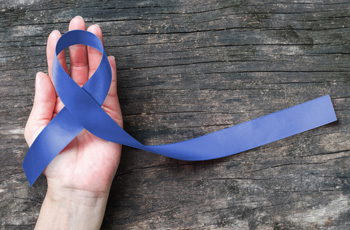
The third most-common cancer in the U.S., colorectal cancer, happens when abnormal cells grow and form tumors in the colon or rectum. While this life-threatening disease can often be successfully treated when caught in its earliest stages, only about half of people older than 50 receive the necessary screening tests to detect or prevent colorectal cancer.
Reasons why adults between 50 and 75 are not up-to-date with colorectal cancer screening include:
- Their provider didn’t tell them they should receive the screening
- They don’t realize a person’s colorectal cancer risk increases with age
- They don’t have insurance or a health care provider
- They have anxiety about the test
Whether it’s fear or another reason, if everyone received testing, the American Cancer Society notes that tens of thousands of lives could be saved every year. That’s why if you’re 50 or over, it’s critical to put your worries aside and talk to your doctor about colorectal screening. Most insurance plans, including Medicare, cover part of the cost for these important screenings. If you don’t have insurance, call your local health department or (800) CDC-INFO (800-232-4636) to find out if your area offers access to free or low-cost colorectal cancer screenings.
A Closer Look at Colonoscopy
Experts advise routine testing for individuals age 50 and older who have a normal risk for colorectal cancer. If you have a higher risk for this type of cancer, your provider may suggest earlier or more frequent testing.
Colonoscopy is one of many tests used to screen for colorectal cancer. It allows your provider to look (through a thin, flexible tube called a colonoscope) at the inner lining of the large intestine. The tube is linked to a video monitor similar to a TV screen. A colonoscopy can help find ulcers, colon polyps (precancerous growths), tumors and areas of inflammation or bleeding. During this test, tissue samples can be collected and any abnormal growths removed.
Because patients are not fully awake during a colonoscopy, the most uncomfortable part of the test is usually the “prep.” The prep involves drinking a special solution to empty out the colon before your colonoscopy.
Prevention is Power
While you can’t prevent colorectal cancer, there are things you can do to lower your chances of getting it. Along with receiving routine screening, you should also strive to:
- Maintain a healthy weight.
- Eat well, focusing on whole grains, fruits, vegetables, poultry and fish versus red meat, processed meats and sweets.
- Drink in moderation (no more than two alcoholic drinks per day for men and one per day for women).
- Exercise regularly. Increasing the intensity of your physical activity, whenever possible, may be especially beneficial.
- Quit smoking. Cigarette smoking boosts your chances of colorectal cancer, as well as many other cancers.
Holland Hospital offers local access to comprehensive gastrointestinal care, including the latest screening and treatment options for colorectal cancer.